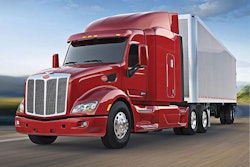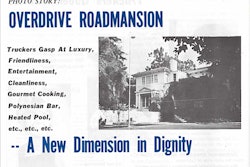
Trucking news and briefs for March 18, 2020:
Mackinac Bridge, Illinois Tollway system moving to no-cash tolls
In accordance with Gov. Gretchen Whitmer and Michigan Department of Health and Human Services’ recommendations designed to help prevent the spread of COVID-19, the Mackinac Bridge Authority will not accept cash transactions starting March 21. Bridge users will need to pay with a credit or debit card, or use a MacPass card or windshield sticker. The MBA and toll staff will be encouraging transition to non-cash payments for the next few days until cash is no longer accepted; though MBA noted it would re-evaluate the policy should conditions change
If drivers wish to pay with credit or debit cards, the toll collector will hold the credit card device out to the driver so they can insert their card. Drivers will not need to hand their cards to the toll collector.
Illinois Tollway operators also moved to what it called a temporary implementation of all-electronic tolling as a precaution to limit the potential spread of the coronavirus disease to customers, as well as Tollway employees. All Illinois Tollway roadways will remain open to traffic through the implementation, yet toll booths at mainline toll plazas will be offline, and automatic toll payment machines at ramp and mainline toll plazas will be deactivated. The Tollway’s maintenance staff, incident management personnel and HELP truck drivers will remain on duty.

Grace period tolling will be extended, and violations will be held through the duration of these toll plaza service interruptions. Toll collection will be entirely handled via I-PASS, E-ZPass and through the Tollway’s online payment portal. Find more information via this link.
Customers without I-PASS are encouraged to visit the Tollway website (IllinoisTollway.com) to calculate missed tolls and pay online within seven days, or use the “search by plate” feature after seven days, the authority notes.
Pennsylvania convert rest areas to truck parking only
The Pennsylvania Department of Transportation appears to have changed its mind about closing rest areas on Interstate highways and not allowing trucks to park in them. Instead, the state says it will close the facilities but still allow trucks — and only trucks — to park there.
PennDOT earlier this week it was closing interstate highways’ rest areas and not allowing access to parking at them. At the same time, the Pennsylvania Turnpike Authority closed its rest area but was allowing parking and had installed porta-potties.
“It is PennDOT’s plan to begin opening rest areas for truck-only parking over the next day or two,” says Kevin Stewart, president of the Pennsylvania Motor Truck Association. He says he spoke to PennDOT Tuesday after the state announced intentions to close the rest areas.
“They are unsure whether that will include restroom and vending or keep the buildings closed and utilize port-a-potties or offer no services outside of parking. They are looking at the high volume locations first. We continue to stress the utmost importance rest areas play in maintaining driver health and safety and will continue to press the Department to open these facilities as expeditiously as possible.”










